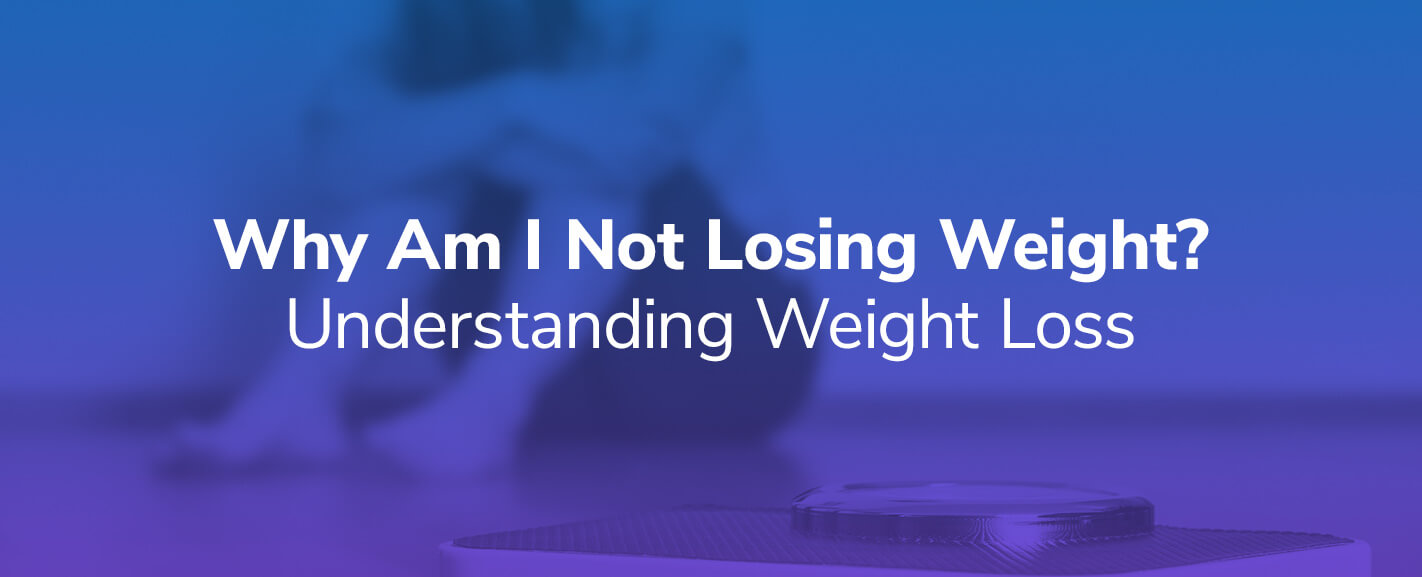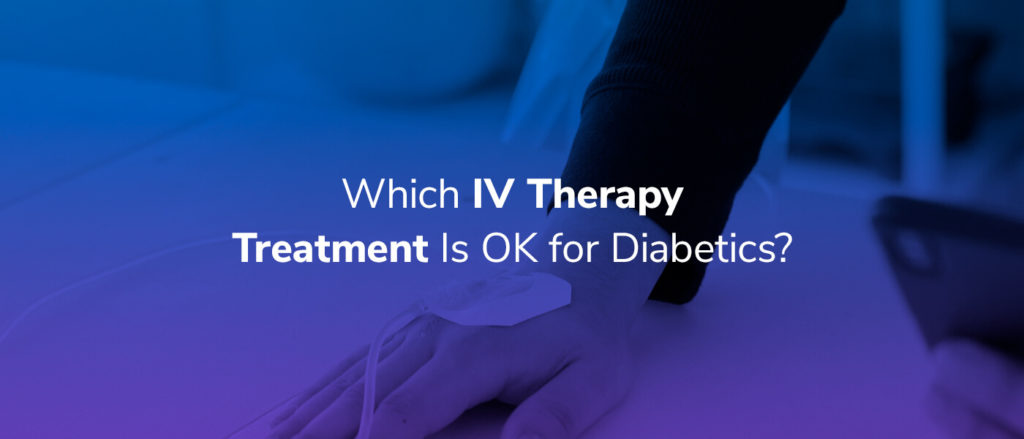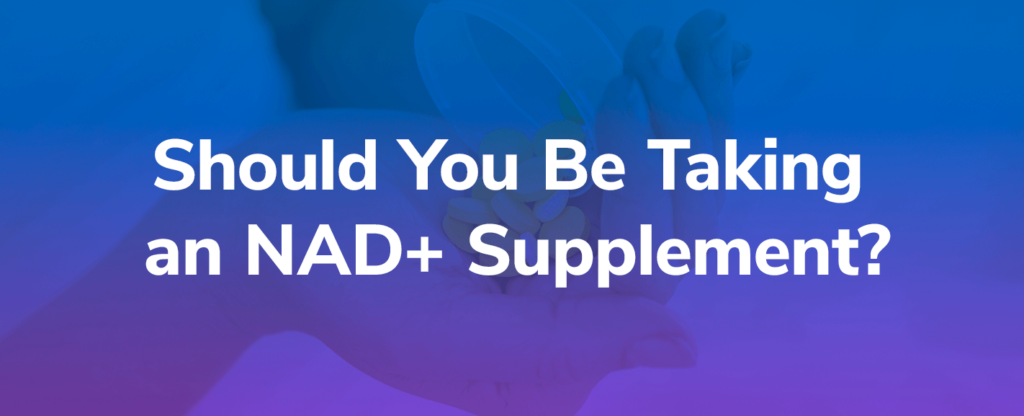Do you feel like you put great effort into dieting and working out to see no results? Your frustration is felt and understood by many people in the same position — weight loss is no easy feat.
Because we’re all different, our bodies respond differently to the same workouts, exercise and diets. In some cases, the body doesn’t respond at all. Sometimes, our bodies need more than just exercise and drastic diets to look how we want. Knowing what causes these challenges can help you understand your weight loss strategy, avoiding the weight loss plateau.
When you know why your body responds the way it does, you’ll know what it needs for you to get into shape. Whether the answer is fewer calories, eating healthy foods, or getting more sleep, let’s dive into why you may struggle to lose weight and how you can address this issue.
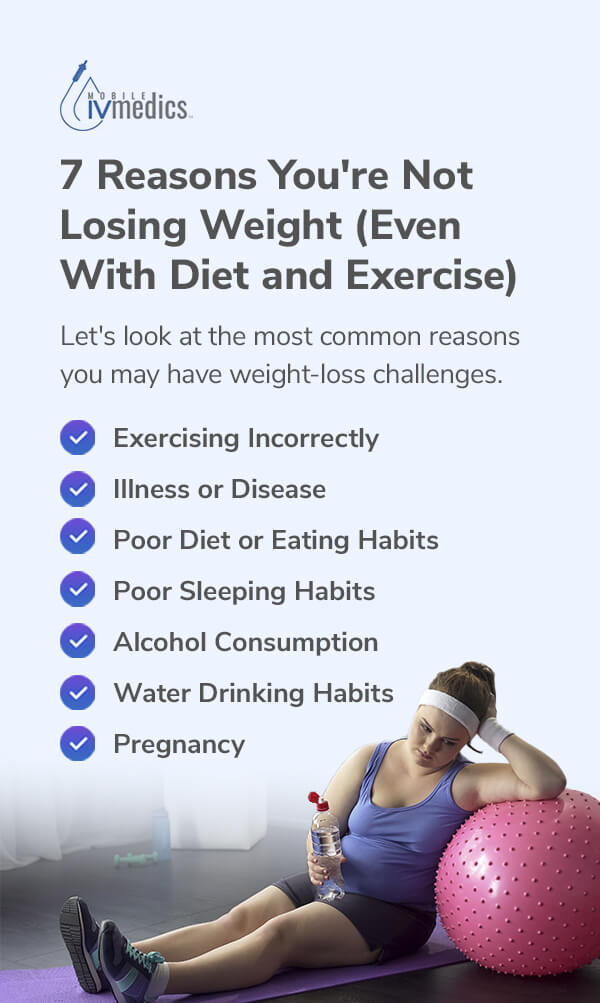
7 Reasons You’re Not Losing Weight (Even With Diet and Exercise)
So, you’ve built a workout routine — you’re on a diet, you exercise regularly and weeks later, you still ask yourself, “Why can’t I lose the weight?“.
People struggle trying to lose weight for countless reasons, some more common than others. Most times, people are not aware of what their bodies truly need to achieve their goals. Because of this, many tend to work against their bodies unknowingly, only adding to the issue. Some people may have pre-existing medical conditions that make their weight loss efforts difficult. Let’s look at the most common reasons you may have weight-loss challenges.
1. Exercising Incorrectly
Exercising is one of the best methods to lose weight, helping you burn calories and fat or build muscle. Different exercises target specific body parts and produce different results. Because all humans are different, the amount of physical activity you require to reach your goals entirely depends on your body, abilities, and will.
If you’re having trouble losing weight even with exercise, it may be due to your form. Poor exercising posture or form can lead to slowed weight loss as well as critical injuries. It’s always advised that you use professional guidance or, at the very least, detailed expert instructions on how to do the specific exercises.
Exercising involves putting weight and pressure on your specific body parts. This pressure can come from your body weight or external weight or machines. Applying or transferring this weight to your body with the wrong form can have adverse or unwanted effects.
When you put pressure on your limbs incorrectly, you use the wrong muscles and joints to support that weight. This can lead to injured joints, torn or dysfunctional muscles, limps, sprains, or no visible results of progress in your target area.
2. Illness or Disease
Most times, illness and heart disease are associated with unexplained, drastic weight loss. However, there are several illnesses and conditions that can hinder weight loss progress making it increasingly challenging for people to lose weight. Let’s look at some illnesses frequently related to not being able to lose weight:
- Underactive thyroid: This endocrine gland produces the hormones your body needs to control how fast it burns calories and your heartbeat rate. These two factors make up your metabolism, which controls how quickly you either lose or gain weight. Hypothyroidism is when your thyroids do not produce enough hormones for your body to use. When this happens, many of your body’s vital functions, including its ability to burn calories, are slowed down. This results in unwanted weight gain or stopped weight loss.
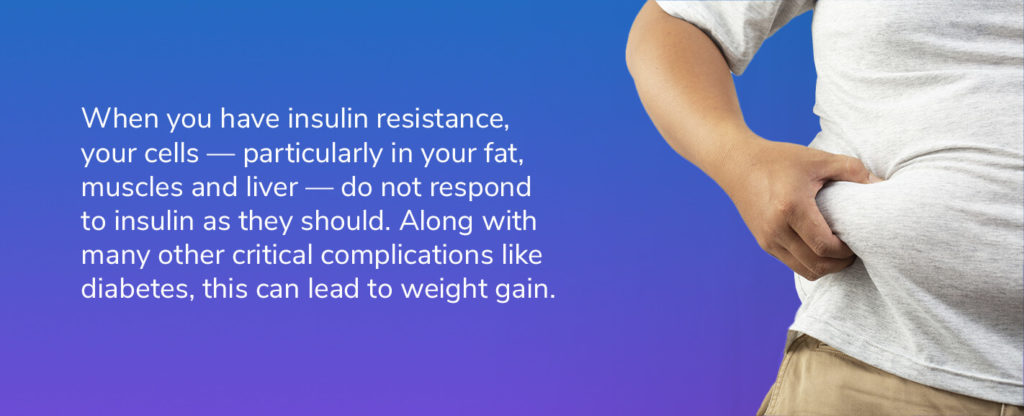
- Insulin resistance: Insulin is a hormone created in your pancreas. When you eat, food releases glucose into your blood, and the pancreas releases insulin to help your cells convert glucose into the energy your body needs. When you have insulin resistance, your cells — particularly in your fat, muscles, and liver — do not respond to insulin as they should. Along with many other critical complications like diabetes, this can lead to weight gain.
- Mental health issues: Issues like chronic stress, anxiety, or depression can lead to challenges with losing weight. Mental conditions create changes that can cause abnormal hormone production, telling your body to store energy or stop using up calories. Other times, people with mental health difficulties may use food as a coping tool. Another reason for the connection between mental health issues and weight loss difficulties is that medications taken to alleviate symptoms can cause weight gain.
- Hormone-related conditions: Women go through many changes as they grow older that impact their hormones. When you grow and change, your hormone production gets altered. This can be the result of the onset of menopause, your menstrual cycle, or pregnancy. Most times, hormones change because it’s natural. Normal as they may be, hormonal changes can lead to weight gain.
- Polycystic ovary syndrome (PCOS): PCOS is a condition where the ovaries grow numerous tiny cysts on them and your hormones become imbalanced. A hormonal imbalance and other PCOS symptoms like inflammation can hinder weight loss.
- Chronic inflammation: Inflammation is how your body responds to getting injured or threats like infections. Inflammation symptoms result from your body sending extra white blood cells to protect itself. Chronic inflammation happens internally. When your cells get injured or damaged, your body sends more white cells to that area to protect it. But this happens inside the body and could lead to complications. Chronic inflammation puts your body under continued stress and can make it tough to shed those extra pounds.
3. Poor Diet or Eating Habits Leading to Weight Gain
The food we eat directly impacts our body weight. While certain foods help you lose weight, some make you pack some unwelcome pounds. Simply eating healthier can have a significant impact on your weight and health. It’s also important to note how often we eat and the quantities of what we eat.
Even if you’re on a balanced diet, and trying to lose weight, you may be engaging in some unhelpful eating habits. Eating disorders can also lead to poor weight loss efforts, but even if not this extreme, pay attention to your diet.
Poor diet and eating disorders come in different forms:
- Undereating: Most people would assume that eating less should automatically result in losing weight, but that’s not always the case. Not eating enough can lead your body to start storing the little you eat as fat. When your body has a limited supply of energy, it starts storing the energy it gets to dispense it as needed.
- Overeating: It makes more sense that the more you eat, the more weight you’ll gain. The kind of food you eat plays a crucial role in your weight loss process. A diet of fatty food and sugary drinks could lead to many health issues related to weight gain. Sometimes, the constant snack may be your issue, or it could be that your portions are too large. When you eat more calories than your body can burn, your body stores what it doesn’t use as fat, even if those foods are otherwise considered healthy.
- Over-focused diets: Many believe in several diets as the key to weight loss. Many diets, however, tend to cut out whole food groups or are overly focused on a specific food group and can only last a short while. Cutting out food groups from your diet or only concentrating on some food groups means that you are cutting out specific nutrients, proteins, or other dietary elements that your body needs to create the right hormones to function.
- Distracted eating: When you don’t pay attention to what you eat, you can overeat or consume foods that aren’t nutritionally valuable. Watching TV while you eat, for instance, can make your food less satisfying. Or, if you eat snacks right out of the package, you may lose track of how much you’ve eaten and go over the recommended portion.
4. Poor Sleeping Habits
Your body needs a healthy amount of rest to recharge itself every 24 hours. Poor sleeping habits can result in multiple health problems and issues, including increased appetite making it difficult to reach a healthy weight.
When your body goes for long periods without rest, it needs more calories and energy to keep functioning. Most times, the food choices we make when tired include high-sugar foods. Sugary foods give you a quick energy boost to let you keep functioning as close to normal as possible but can lead to weight gain.
But this boost is temporary and may only last a few minutes before you need another sugar shot, leading to high consumption of empty calories, that end up being stored as fat.
5. Alcohol Consumption
For many, having a cold beer at the end of the day to complement their meal is standard practice. But what does this practice of alcoholic beverages really do to your gut health and body besides adding more calories to your diet?
Alcohol is a high-calorie substance that can make it difficult to reach your healthy weight. The issue is that your body cannot use these calories. Your body treats calorie consumption from alcohol like a threat and uses energy to work hard at getting the alcohol out of your system.
It prioritizes fighting alcohol out of your body over collecting any nutrients, so, eating a meal with a beer nullifies the nutrients you would have gotten from the food. Overall, alcohol pauses your body’s metabolism. It significantly decreases your body’s ability to burn off calories as the metabolism slows.
Alcohol can also compromise how your glands produce hormones. Your body produces cortisol, the stress hormone that helps control:
- How your body uses carbs, proteins, and fats
- Inflammation reduction
- Your sleeping and waking-up patterns
- Glucose levels
- Blood pressure
When you drink alcohol, your hormones get impaired and may make too much cortisol. Increased cortisol in your body can lead to weight gain and loss of muscle mass.
Too much cortisol can also contribute to issues with your sleeping patterns causing you to not get enough sleep and compounding the issue.
6. Water Drinking Habits
When you drink little water, you put your body at risk of getting dehydrated. Dehydration replaces your body’s thirst signals with hunger signals. This leads to you eating more instead of addressing the issue. Your body needs water to create the digestive fluids your stomach needs to digest food.
When your body doesn’t have enough water, your metabolism gets slowed down and you can suffer from constipation. All of these issues can result in struggles with losing weight.
Not only that, water can also help you feel full if you are on a restrictive diet, helping you to withstand the cravings around processed foods. When we become dehydrated our brains begin to want quick and fast calories commonly associated with processed foods. Think sugars, high-carbs, trans fats, and the usual offenders that come with weight loss cravings.
Drink more water and stay hydrated. If you struggle with chronic dehydration, there are some solutions. One of which is offered by Mobile IV Medics. IV Hydration is a simple way to alleviate dehydration symptoms and restore hydration levels within your body.
7. Pregnancy
Pregnancy is a beautiful and physically taxing experience. Your body expands and stretches to make room for your growing bundle. As your baby grows, you can experience internal inflammation or other conditions that may lead to gaining weight.
Pregnancy can also hinder how you sleep. As your baby gets bigger, they get heavier, which can make sleeping uncomfortable. Pregnancy limits the positions you can sleep in, leading to challenges with falling asleep.
A lack of sleep or irregular sleep leads to fatigue. Your body needs more energy to function, resulting in cravings for high-sugar foods.
When you are pregnant, you naturally get hungrier because your body needs extra calories to create energy for you and your growing baby. All the food you eat while you’re pregnant nourishes you and your baby. This leads to increased eating.
How Can an IV Drip Help You Lose Weight?
IV drip therapy is a new and increasingly popular treatment. It’s aimed at giving your body concentrated vitamin shots to help alleviate, ease, or manage symptoms. IV drips can help treat the symptoms of many ailments, like hangovers, but they can also help you lose unwanted weight.
Because these vitamins are administered with a drip, they go directly to your bloodstream, letting your body retain more vitamins and experience the effects faster.
Mobile IV Medics offers a range of IV treatment options, including drip therapy for weight loss. If you feel like you’ve stopped losing weight or that you can’t lose weight, our treatment option has a combination of vitamins to help you get started or maintain your goals.
The weight loss drip therapy package we offer contains a combination of essential vitamins to help support your body’s natural weight loss process.
This treatment includes the following vitamins and ingredients:
- IV fluid: This is one of the best ways to keep you hydrated and boost energy.
- Vitamin B complex: This combination of essential vitamins helps your body convert food into the energy it needs and helps reduce stress.
- Vitamin B12: This aids your body’s cellular functionality and reduces exhaustion.
- Vitamin C: Your body uses vitamin C to support the adrenal glands and reduce fatigue.
- Taurine: This helps your body channel energy to where it’s needed and helps regulate stress levels.
- Methionine, inositol, and choline (MIC): This aids your metabolic processes and how your body breaks down fat.

Schedule Your Weight Loss IV Drip Today
Weight loss is rarely an easy journey. It takes commitment, effort, and discipline to reach any weight loss goals, and having existing conditions can make it more challenging to get started. That’s why we want to help you.
Your weight loss struggles can become a thing of the past. With our weight loss drip therapy treatment, you give your body the vitamin boost it needs to help naturally engage in its weight loss process.
Book your weight loss IV treatment, and Mobile IV Medics will come to you to save you the hassle.
Related Articles:
- What Is IV Glutathione Good For?
- View Our IV Treatment Menu
- How Can I Hydrate My Body Without Drinking Water?
- What Is The Myers’ Cocktail?
